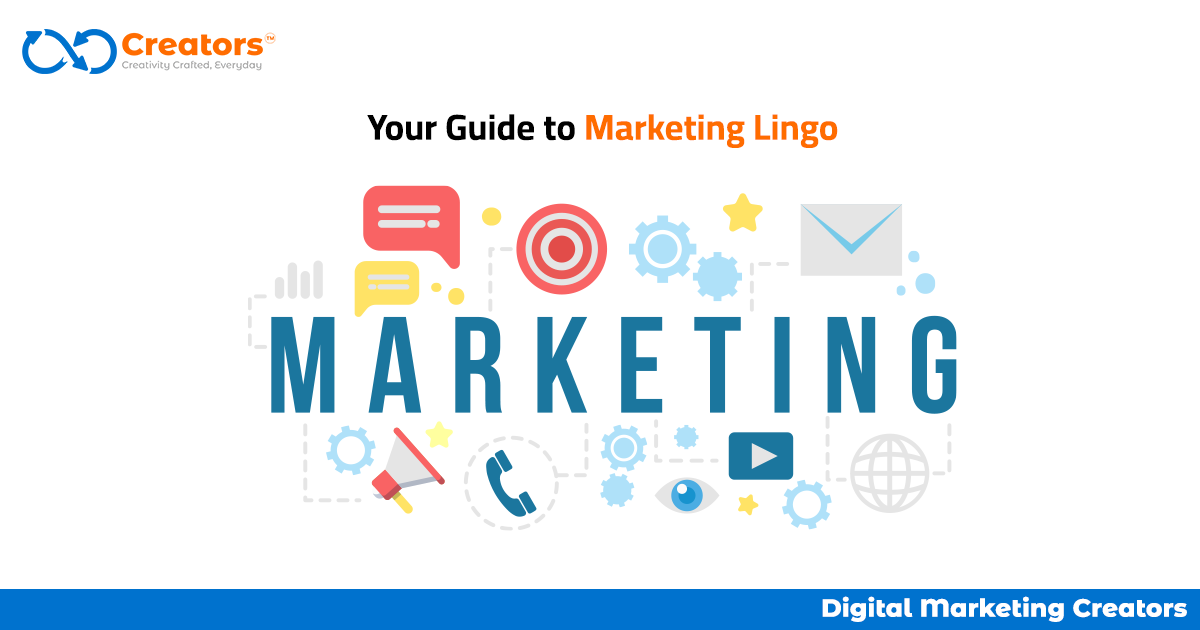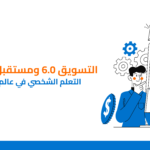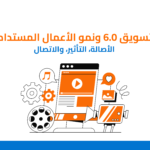Your Guide to Marketing Lingo
Welcome to the ever-evolving world of digital marketing! Navigating this dynamic landscape requires fluency in its unique language. Whether you’re a seasoned marketer or just starting your journey, this comprehensive glossary equips you with the essential terms you need to understand campaign strategies, analyze data, and ultimately, achieve marketing success.
Dive into the roles that make the marketing machine hum, from the strategic “Marketing Manager” to the content-wielding “Content Creator.” We’ll explore the various “Marketing Channels” at your disposal, from the brand-owned “Website” to the influential realm of “Earned Media” like online reviews.
Unravel the core concepts that underpin successful marketing campaigns, from the classic “Marketing Mix (4Ps)” to the data-driven world of “Key Performance Indicators (KPIs).” Demystify technical terms like “Search Engine Optimization (SEO)” and “Landing Page” to ensure your website attracts and converts visitors.
Ready to unlock the power of marketing for your business? Explore this glossary and transform yourself from a digital novice to a marketing master!
I. Key Players
- Marketer: An individual responsible for planning, developing, and executing marketing strategies. They may specialize in specific areas like SEO, PPC, content marketing, or social media marketing.
- Marketing Manager: Oversees the marketing team, sets marketing goals and budgets, manages projects, and develops overall marketing strategies.
- Content Creator: Develops engaging and informative content (written, visual, or video) that attracts and educates the target audience.
- Web Analyst: Tracks and analyzes website traffic data to understand user behavior and optimize website performance.
- Social Media Manager: Creates and manages social media content calendars, engages with followers, and runs social media advertising campaigns.
- SEO Specialist: Optimizes website content and technical aspects to improve search engine ranking and organic traffic.
- PPC Specialist: Manages pay-per-click advertising campaigns across search engines and social media platforms.
- Email Marketing Specialist: Creates and manages email marketing campaigns, designs email templates, and analyzes campaign performance.
- Target Audience: The specific group of people a marketing campaign aims to reach, defined by demographics, interests, and online behavior.
II. Marketing Channels
A. Owned Media: Channels controlled by the brand:
- Website: The central hub of a brand’s online presence, showcasing information, products/services, and providing a platform for content marketing.
- Blog: A platform for publishing informative and engaging articles relevant to the target audience, attracting organic traffic and building brand authority.
- Social Media Channels: Platforms like Facebook, Instagram, Twitter, LinkedIn, etc., used for brand storytelling, community building, and targeted advertising.
- Email Marketing: Building email lists and sending targeted email campaigns to nurture leads, promote content, and drive conversions.
B. Paid Media: Channels requiring payment to reach the target audience:
- Search Engine Marketing (SEM): Paid advertising on search engines like Google Ads, appearing above organic search results for relevant keywords.
- Social Media Advertising: Paid advertising on social media platforms, allowing targeted campaigns based on demographics, interests, and behaviors.
- Display Advertising: Placing visual ads (banners, images) on high-traffic websites relevant to the target audience.
C. Earned Media: Uncontrolled exposure generated by others:
- Public Relations (PR): Building relationships with journalists and influencers to generate positive brand mentions in online publications and social media.
- Online Reviews & Ratings: Positive customer reviews on platforms like Google My Business or review websites can significantly impact brand reputation.
- Viral Marketing: Content that spreads rapidly online through user sharing, creating organic reach and brand awareness.
III. Marketing Terminology
A. Core Concepts:
- Marketing Mix (4Ps) in Digital Marketing:
- Product: The product or service being marketed (e.g., website, app, online course).
- Price: The pricing strategy for the digital product or service, including freemium models or subscription plans.
- Place (Distribution): The online channels used to deliver the product/service to the target audience (website, app store, online marketplace).
- Promotion: The digital marketing activities used to attract and engage the target audience.
- Marketing Automation: Software tools that automate repetitive marketing tasks like email campaigns or social media scheduling.
- Customer Journey: The entire experience a customer has with a brand across all digital touchpoints.
- Conversion Rate: The percentage of website visitors or leads who take a desired action (e.g., purchase a product, subscribe to a newsletter).
- Key Performance Indicators (KPIs): Measurable metrics used to track the success of marketing campaigns and strategies (e.g., website traffic, lead generation, conversion rates, ROI).
B. Technical Concepts:
- Search Engine Optimization (SEO): Optimizing website content and technical aspects to improve organic ranking in search engine results pages (SERPs).
- Pay-Per-Click (PPC) Advertising: Bidding on keywords to display targeted ads on search engines and social media platforms.
- Landing Page: A standalone web page designed to capture leads or drive conversions through targeted calls to action.
- Content Management System (CMS): A software platform that allows easy website creation, content editing, and management.
- Analytics Tools: Software like Google Analytics that track website traffic, user behavior, and campaign performance.
- A/B Testing: Comparing two versions of a website element (e.g., button copy, layout) to see which one performs better.
IV. Supplementary Terms
- Market Research: The process of collecting and analyzing data about the target audience, their needs, online behavior, and competitor strategies.
- Marketing Funnel (5As): The stages a potential customer goes through before becoming a client:
- Awareness: This stage is where potential customers first become aware of a brand, product, or service. This could happen through various marketing channels like social media ads, website visits, or word-of-mouth recommendations.
- Appeal: In this stage, the potential customer’s interest is piqued. Marketing efforts here should highlight the value proposition and benefits the offering provides to address the customer’s needs or pain points.
- Ask: At this stage, the potential customer actively seeks more information. They may visit the brand’s website, read reviews, or contact the company directly to ask questions and gather details before making a decision.
- Act: This is the conversion stage where the potential customer takes the desired action. This could be making a purchase, subscribing to a service, downloading a resource, or contacting sales for further information.
- Advocate: This final stage goes beyond the initial purchase. Here, the focus is on turning satisfied customers into loyal advocates. Effective marketing strategies encourage customers to share positive experiences, recommend the brand to others, and potentially become repeat buyers.
- Segmentation & Targeting: Dividing the target audience into smaller groups with similar demographics, interests, and online behavior. This allows for more personalized and effective marketing messages.
- Brand Positioning: The specific place a brand occupies in the target audience’s mind compared to competitors. Effective digital marketing helps establish a unique and desirable brand position.
- Programmatic Advertising: Using automated software to buy and sell ad space across various online platforms, optimizing campaign efficiency.
- Remarketing: Targeting website visitors who have previously interacted with the brand (e.g., visited a product page) with follow-up ads to remind them of their interest.
- Influencer Marketing: Partnering with social media personalities or industry experts to promote the brand or its products to their audience.
- Content Marketing Strategy: A documented plan that outlines the types of content to be created, target audience, content distribution channels, and content goals (e.g., brand awareness, lead generation).
- Social Listening: Monitoring online conversations about the brand, competitors, and industry trends to gain insights and inform marketing strategies.
Speak the Language, Drive Marketing Results
Congratulations! You’ve reached the end of this comprehensive marketing glossary. Armed with this newfound knowledge, you’re now equipped to confidently navigate the exciting world of digital marketing. Remember, effective communication is the key to success. By understanding this essential lingo, you can craft targeted campaigns, engage with your audience, and ultimately achieve your marketing goals.
But the journey doesn’t stop here! Put your knowledge to the test and start crafting winning marketing strategies. Contact us today to discuss how we can help you develop a data-driven plan that drives results and propels your brand to new heights. We’re a team of passionate marketing experts dedicated to empowering businesses like yours to thrive in the digital age.






